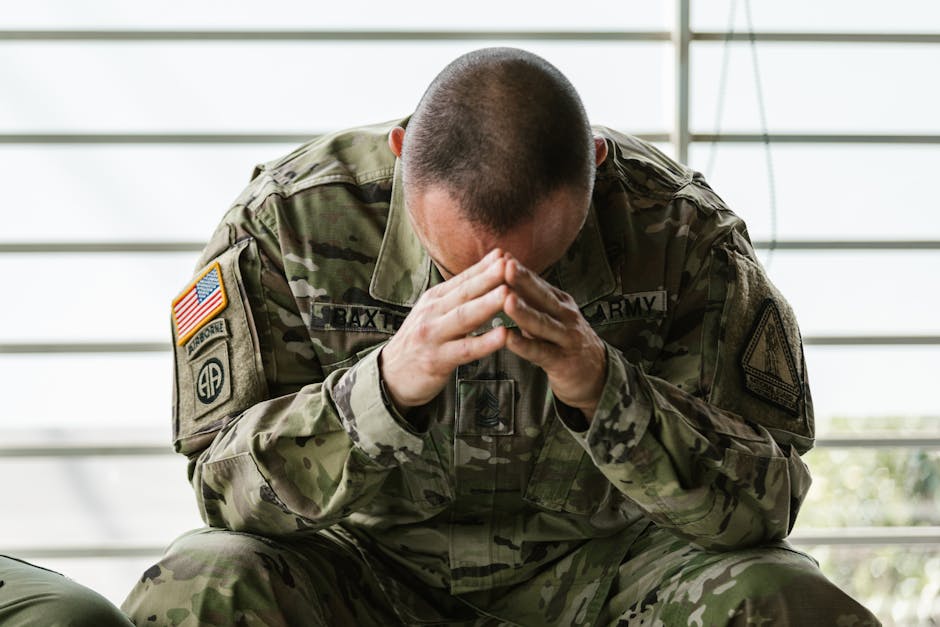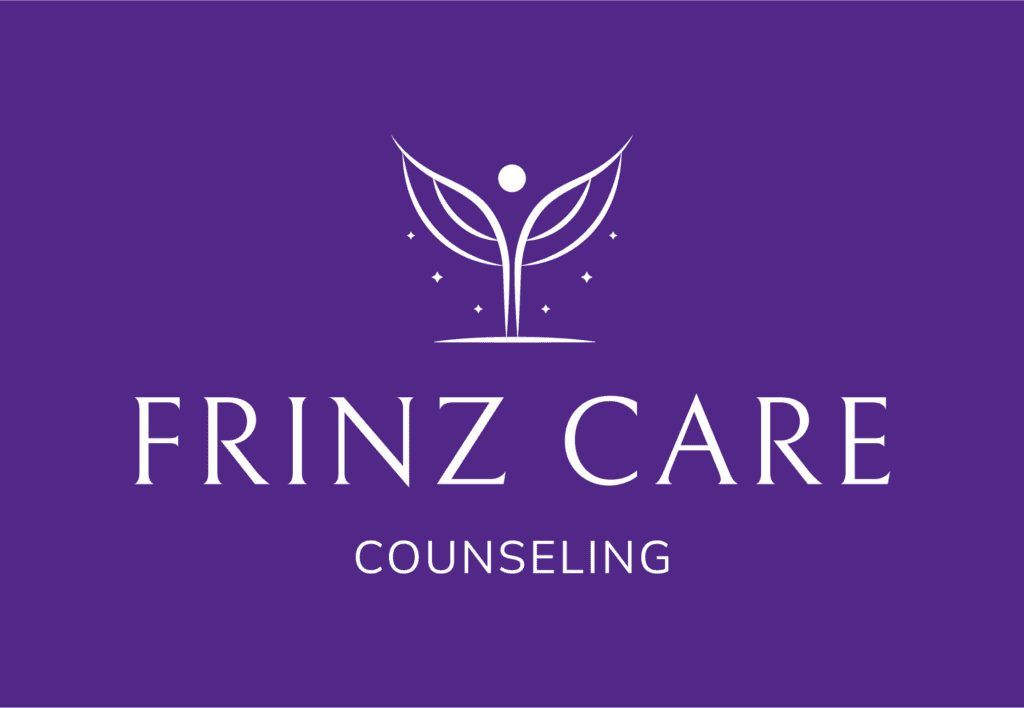Do you often find yourself tormented by disturbing memories that make you feel stuck in a constant state of danger or despair? You may be dealing with PTSD. PTSD, or Post-traumatic stress disorder, is a mental health issue triggered by a traumatic event – anything that makes you fear for your safety. This can include traumatic occurrences like combat experiences, sexual assault, natural disasters, witnessing violence, or even cleaning up the aftermath as an emergency worker or law enforcement officer.
At Frinz Care, we understand the deeply unsettling impact that PTSD can have on your life. Feeling perpetually threatened, disconnected, anxious, and having constant reminders of the traumatic event is far from everyday anxiety or sadness. These are the glaring signs of PTSD.
However, keep in mind that experiencing such emotions immediately after a traumatizing event is normal. It’s when these feelings don’t recede over time, rather seem to intensify, that you may be grappling with PTSD. It’s essential to acknowledge that everyone’s experience with PTSD will be different. This disparity is due to individual differences in nervous systems and stress tolerance.
Coping with PTSD isn’t about forgetting the event but learning to manage its impact. We realize it’s a difficult journey, but together we can make it less overwhelming. The important thing to remember here is that help is available, and it’s okay to reach out.

To start your journey of dealing with PTSD, here are some key points to remember:
- PTSD is a response to a traumatic event: It’s not something you bring upon yourself. PTSD is your body and mind’s way of responding to distressing experiences.
- The symptoms can manifest differently: Some people’s PTSD symptoms appear immediately after the event while for others it may take weeks, months or even years.
- Understanding the symptoms is crucial: Common symptoms include intrusive memories, nightmares, heightened anxiety, a constant feeling of distress.
- Seeking help is essential: If you’re experiencing these symptoms and they haven’t subsided over time, it’s crucial to seek professional help.
- It is manageable: Dealing with PTSD can feel insurmountable, but with the right help and coping strategies, it’s possible to manage the symptoms and lead a fulfilling life.
At Frinz Care, we’re committed to arming you with the necessary tools to manage your PTSD symptoms and improve your quality of life. Let’s take the first step together.
Recognizing the Symptoms of PTSD
The 17 Symptoms of PTSD
When dealing with PTSD, it’s crucial to recognize the symptoms first to kickstart your recovery journey. The symptoms of PTSD can vary from person to person, but some common signs include:
- Agitation
- Nervousness and anxiety
- Problems with concentration or thinking
- Memory issues
- Regular headaches
- Depression and crying spells
- Suicidal thoughts or attempts
- Mood swings
Other symptoms might include nightmares, sleep disturbances, or even physical symptoms such as chronic pain or fatigue. These symptoms can be distressing and overwhelming, but remember that help is available. At Frinz Care, we provide support and effective treatment options tailored to your unique needs.
How PTSD Can Be Debilitating

PTSD can be a debilitating condition that significantly affects your daily life. It’s triggered by experiencing trauma, which leaves you feeling stuck with a constant sense of danger and painful memories. For many, this means dealing with emotions and outbursts that feel uncontrollable, avoiding thoughts related to the trauma, and experiencing flashbacks that feel all too real.
PTSD can also impact your physical health, causing headaches, chronic pain, and sleep disturbances. It can disrupt your relationships, work, and other aspects of your life. But the good news is that it’s possible to manage these symptoms and regain control over your life with the right treatment and support.
At Frinz Care, we understand how challenging dealing with PTSD can be. Our dedicated team of professionals is here to provide the support you need and help you develop effective coping strategies. By recognizing the symptoms and understanding the debilitating nature of PTSD, you can take the first step towards healing and recovery.
The Importance of Active Coping and Recovery Process
Embarking on the path toward healing begins with understanding the importance of active coping and embracing the recovery process. These elements play a significant role in managing PTSD.
The Role of Active Coping in PTSD Management
Active coping is crucial when you’re dealing with PTSD. It involves accepting the impact of trauma on your life and taking direct steps to improve things. Active coping isn’t just a response to a crisis; it’s a way of dealing with everyday life. It’s a habit that needs to be nurtured and strengthened consistently.
Active coping can involve several positive actions such as learning more about trauma and PTSD, reaching out to others for support, practicing relaxation methods, and engaging in positive activities. For instance, understanding that PTSD symptoms are common can help you realize that you’re not alone, weak, or crazy. This knowledge can be empowering and help you better cope with the symptoms of PTSD .
Understanding the Recovery Process: It’s a Journey, Not a Destination
Recovering from PTSD is an ongoing process. It’s essential to understand that healing doesn’t happen overnight. It’s a daily journey that happens little by little. It’s not about being cured suddenly, but about experiencing fewer symptoms and having those symptoms bother you less over time.
Recovery doesn’t mean forgetting traumatic events or having no pain when thinking about them. It’s about gaining more confidence in your ability to manage your memories and symptoms. It’s about having more control over your feelings, and over time, finding a way to live a fulfilling life despite the traumatic past .
At Frinz Care, we understand that each person’s recovery process is unique. We are committed to helping you find the right coping strategies and supporting you every step of the way. You aren’t alone in this journey. We’re here to help you navigate your way to a brighter future.
Effective Coping Strategies for Managing PTSD Symptoms
Dealing with PTSD requires a combination of effective coping strategies that address various symptoms. As we navigate these strategies, remember it’s all about finding what works best for you.
Grounding Techniques for PTSD Flashbacks
Flashbacks can be overwhelming and disruptive. Grounding techniques can help you stay anchored in the present. Try focusing on your breathing or carry an object that reminds you of the present. This could be anything from a small stone to a piece of jewelry. Another strategy is to keep a diary where you can jot down your experiences during flashbacks, which can help you identify triggers and patterns.
Breathing Exercises to Calm Anxiety and Panic
Breathing exercises play a crucial role in calming anxiety and panic. Deep, controlled breathing can reduce stress and promote relaxation. Try inhaling slowly for a count of four, holding the breath for a count of four, and then exhaling for a count of four. Repeat this cycle several times until you start feeling calmer.
Strategies for Managing Nightmares and Establishing a Regular Sleep Schedule
Sleep disturbances, including nightmares, are common in PTSD. Keeping a regular sleep schedule can help your body establish a natural sleep-wake cycle. Try going to bed and waking up at the same time every day. If nightmares persist, it’s critical to seek professional help. At Frinz Care, we offer guidance on managing nightmares and improving sleep quality.
Techniques for Managing Irritability and Anger
Uncontrolled anger can lead to stress and complications in personal relationships. Staying angry doesn’t work. Instead, it increases your stress and can cause health problems. Anger management techniques such as deep breathing, progressive muscle relaxation, and mindfulness may be useful. Talk to your counselor or doctor about your anger and take steps to manage it effectively.
Improving Concentration and Memory: Practical Tips
Difficulty concentrating is a common symptom of PTSD. To manage this, slow down and give yourself time to focus. Making “to do” lists and breaking tasks into small chunks can also help improve concentration.
Expressing Positive Emotions: Why It Matters
Experiencing trouble with feeling or expressing positive emotions is a common reaction to trauma. Keep taking part in activities that you enjoy or used to enjoy. Even if you don’t think you’ll enjoy something, once you start, you may experience pleasure. Express your caring to your loved ones in small ways, such as writing a card or calling to say hello.
All these coping strategies need practice to be effective. It’s about trying different methods and finding what suits you best. At Frinz Care, we are with you every step of the way to ensure you receive the support you need in managing your PTSD symptoms.
Unhealthy Coping Skills to Avoid
While there are numerous effective strategies for dealing with PTSD, it’s equally important to identify and avoid unhealthy coping mechanisms. These can actually exacerbate your symptoms, leading to further distress and potentially causing additional health issues.
Substance Use and PTSD: A Dangerous Combination
It’s not uncommon for individuals to turn to drugs or alcohol in an attempt to numb the pain caused by PTSD. However, substance use can be a dangerous trap. While it may offer temporary relief, it can actually increase feelings of anxiety, depression, and can lead to addiction. It’s essential to remember that using substances to cope with trauma can create a vicious cycle that worsens PTSD symptoms over time.
The Risks of Avoidance and Overworking
Another common but unhealthy coping mechanism is avoidance. This can take the form of avoiding others, staying constantly on guard, or avoiding reminders of the trauma. While it might seem like a good way to protect oneself, avoidance actually prevents the healing process from taking place.
Overworking is another form of avoidance. Immersing oneself in work might seem like a productive way to distract from the pain, but it can lead to burnout and further mental health issues. Balance is key, and it’s important to leave time for rest, relaxation, and self-care.
Understanding the Impact of Anger and Violent Behavior
Anger is a natural response to trauma, but when not managed properly, it can lead to violent behavior and further stress. Staying angry doesn’t work. It actually increases your stress and can cause health problems. At Frinz Care, we highly recommend seeking help from a professional to learn how to manage anger effectively.
In conclusion, while dealing with PTSD can be challenging, it’s important to remember that unhealthy coping mechanisms can make the situation worse. At Frinz Care, we’re committed to helping you navigate your unique path of recovery, providing support and guidance every step of the way. We’re here to help you develop healthy coping strategies and avoid harmful behaviors.
Treatment Options for PTSD
Dealing with PTSD is an ongoing journey, and it’s crucial to understand that there are effective treatment options available. These treatments can help manage symptoms, improve your quality of life, and enhance your coping strategies. At Frinz Care, we work with you to tailor treatment to your unique needs and circumstances.
Talking Therapies: Cognitive Behavioral Therapy (CBT) and Eye Movement Desensitization and Reprocessing (EMDR)
Cognitive Behavioral Therapy (CBT) plays a significant role in PTSD treatment. It involves gradually exposing yourself to feelings and situations that remind you of the trauma. CBT helps replace distorted and irrational thoughts about the experience with a more balanced picture. The goal is to decrease the intensity and frequency of intrusive memories, nightmares, and flashbacks, and to minimize avoidance behavior and emotional numbing.
Eye Movement Desensitization and Reprocessing (EMDR) is another effective treatment for PTSD. It incorporates elements of CBT with eye movements or other forms of rhythmic, left-right stimulation to “unfreeze” the brain’s information processing system, which is interrupted in times of extreme stress. EMDR therapy techniques work by helping you safely confront and process traumatic memories and experiences to reduce their emotional impact.
Medication as a Treatment Option: When Is It Necessary?
Medication is sometimes prescribed to people with PTSD to relieve secondary symptoms of depression or anxiety. However, it’s crucial to note that medications do not treat the root causes of PTSD. They are often used in conjunction with talking therapies like CBT and EMDR for comprehensive treatment.
The Role of Support Groups and Charities in PTSD Treatment
Support groups and charities can also play a vital role in managing PTSD symptoms. They offer a safe space where you can share your experiences, learn from others who have gone through similar experiences, and receive the emotional support you need.
At Frinz Care, our mental health counseling services are designed to offer comprehensive support for dealing with PTSD. Whether it’s through individual therapy, medication, or connecting you with relevant support groups and resources, we’re committed to helping you on your path to recovery.
It’s never too late to seek help for PTSD. With the right support and treatment, you can regain control of your life and find a path forward.
Lifestyle Changes to Help Cope with PTSD
While professional help is crucial when dealing with PTSD, adopting certain lifestyle habits can also play a vital role in managing PTSD symptoms effectively. Recovery is not just about managing your symptoms—it’s also about nurturing your overall wellbeing.
The Importance of Physical Health in Managing PTSD
Physical health has a direct impact on your mental health. Simply put, when your body feels good, your mind does too. It’s important to prioritize your physical health as part of your PTSD management strategy.
Healthy Eating
Start by adopting a healthy diet. Nutritious meals not only keep your energy up but also keep your mind clear. Foods rich in Omega-3s, such as fatty fish and flaxseed, play a vital role in emotional health. Limiting processed food, fried food, refined starches, and sugars can help manage mood swings and prevent energy fluctuations.
Adequate Sleep
Sleep deprivation can exacerbate PTSD symptoms like anger and irritability. Aim for 7 to 9 hours of sleep each night. A relaxing bedtime ritual and a quiet, dark, soothing bedroom environment can help improve sleep quality.
Exercise
Regular physical activity is also crucial. Exercise releases endorphins, natural mood lifters that can help combat PTSD symptoms. Whether it’s a brisk walk, yoga, or a more intense workout, find a routine that suits you and stick with it.
Engaging in Positive Activities as a Coping Mechanism
Staying active and engaged can also be beneficial when dealing with PTSD. Behavioral activation is a technique that involves increasing your engagement in positive and rewarding activities. This could include spending time with friends, exercising, volunteering, or even rearranging furniture. Set a goal and track your progress as you engage in these activities.
The Role of Social Support in PTSD Management
In times of struggle, having a strong support system can make a huge difference. Connecting with friends and family members, participating in support groups, or even talking to a trusted individual about your experiences can be incredibly healing. You don’t have to go through this alone.
At Frinz Care, we understand the importance of comprehensive care in managing PTSD. Beyond professional counseling, we encourage our clients to adopt healthy lifestyle habits and engage in positive activities that contribute to overall wellbeing. We’re here to support you every step of the way, providing a partnership in reclaiming a fulfilling and meaningful life.
Conclusion: Hope and Recovery in PTSD Management
The Importance of Taking Things at Your Own Pace
Living with PTSD can be overwhelming, and the journey to recovery is unique for everyone. The process of dealing with PTSD is not a sprint, but a marathon where you need to take things at your own pace. It’s crucial to remember that everyone has their own unique response to trauma, and there’s no set timetable for healing. It’s perfectly okay to take the time you need to heal.
Breathe, be patient with yourself, and remember: you don’t have to go through this alone.
Seeking Professional Help: When and Why It’s Necessary
Dealing with PTSD can be challenging, and while self-care and coping strategies are crucial, professional help is often necessary for recovery. Professional help can reduce the intensity and frequency of symptoms, improve your quality of life, and provide coping strategies to manage stress, anxiety, and triggers related to PTSD.
If you’re experiencing PTSD symptoms, reach out to a mental health professional like a therapist or a counselor. They can provide a range of treatments tailored to your unique needs and circumstances. It’s never too early or too late to ask for help.
The Role of Frinz Care in Providing Accessible and High-Quality Mental Health Services
At Frinz Care, we are committed to your wellness journey. We understand the complexities of PTSD and the courage it takes to seek help. Our goal is to provide you with high-quality care that can be trusted through collaborative and empathetic mental health counseling and life coaching services.
Our team is dedicated to your unique path of recovery. We’re here to provide not just treatment, but a partnership in reclaiming a fulfilling and meaningful life. We offer PTSD counseling tailored to your unique needs and circumstances, designed to reduce symptoms, improve your quality of life, and enhance your coping strategies.
Our services are accessible and convenient, allowing you to meet with us from the comfort of your home, at a time that suits your schedule.
We believe in hope and recovery. With the right treatment and support, things can get better. As an individual shared on Mind, “Hope. There is always hope. With the right treatment and support, things will get better. I’m a living testament.”
We invite you to explore our services and contact us today to start your journey towards healing and recovery. We’re here to help YOU!
For more information on dealing with other mental health conditions, explore our resources on depression, anxiety, and online therapy.


